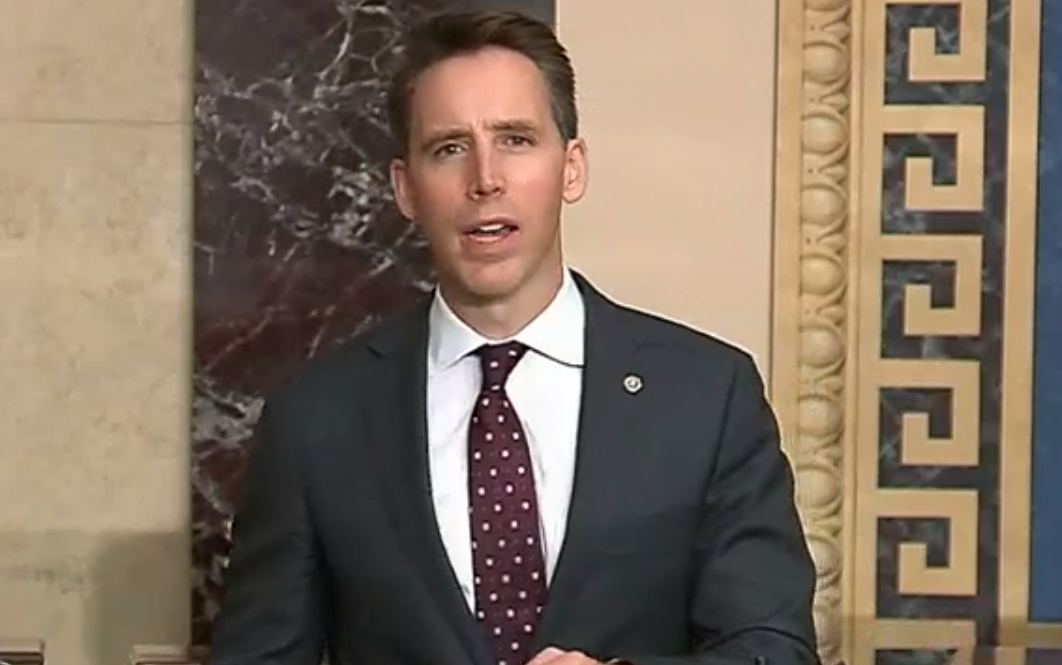Sen. Hawley Presses Barrett on Sec. 230 Issues
Nominee agrees courts should not bend statute toward public policy goals

The smarter way to stay on top of the multichannel video marketplace. Sign up below.
You are now subscribed
Your newsletter sign-up was successful
Sen. Josh Hawley (R-Mo.) pressed Supreme Court nominee Amy Coney Barrett Wednesday (Oct. 14) on the issue of court expansion of statute, specifically citing Sec. 230. Though Barrett only talked generally about the issue, she did agree there was "danger" in courts bending statute to fit their idea of good public policy.
In his questioning of Barrett during day two of her Senate Judiciary Committee confirmation hearing, Sen. Hawley brought up Sec. 230 and Justice Clarence Thomas' commentary on the issue this week in writing about the Supreme Court's denial of cert in a case involving the section. (Sec. 230 is the Communications Decency Act provision that grants Web sites immunity from civil liability for third party content on their sites.)
Related: Justice Thomas Has Issues with Sec. 230
Barrett jokingly asked Sen. Hawley not to ask her anything about Thomas' commentary because she had not had a chance to read his take on the section and the courts.
But Hawley read from Thomas' commentary, saying he thought it was very significant (Hawley has been one of Big Tech's biggest critics, including wanting to limit Sec. 230 immunity). Citing Thomas, Hawley said that the courts, at the behest of Big Tech, had dramatically rewritten the section, including by changing the liability standards and the distinction between publisher and distributor liability, and extending it to product defect claims.
Barrett said she had not ruled on a Sec. 230 case, but when asked, in general, what she thought the "danger" was of courts departing from statutory text and substitutes its own judgment, she weighed in.
Barrett said that without respect to Sec. 230, the danger of courts going beyond the language of statute was that it "subverted the will of the people." She said that since judges are not elected and serve for a lifetime, if they misconstrue or bend statutes to their idea of what would be good public policy, then it deprives the people of the chance to express the policies that they want through the democratic process."
The smarter way to stay on top of the multichannel video marketplace. Sign up below.
Hawley said he was convinced was what had happened with the courts and Sec. 230.
Contributing editor John Eggerton has been an editor and/or writer on media regulation, legislation and policy for over four decades, including covering the FCC, FTC, Congress, the major media trade associations, and the federal courts. In addition to Multichannel News and Broadcasting + Cable, his work has appeared in Radio World, TV Technology, TV Fax, This Week in Consumer Electronics, Variety and the Encyclopedia Britannica.

